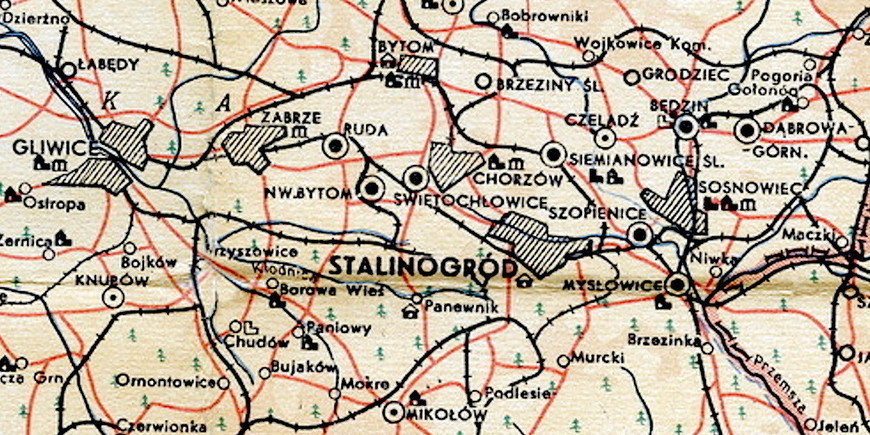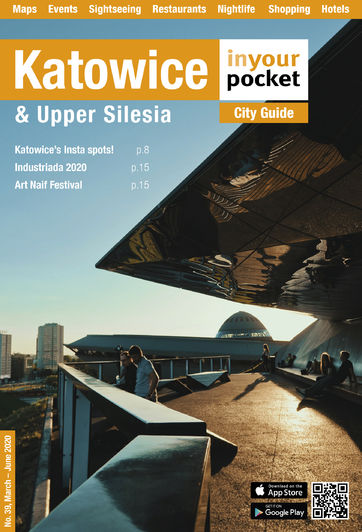Welcome to 'Stalinogród' - Katowice's Short-lived PRL Moniker
18 Nov 2025
That story from the 2009 collection “Train to Stalinogród & Other Stories” by Andrzej Kozioł, reveals much about life in the early days of the People’s Republic of Poland (or PRL, using the Polish acronym). It demonstrates the confusion and chaos of Poland’s monumental post-World War II change from fighting Nazis to coping with Communists.
At least a dozen more cities in other Soviet satellites received the “gift” of a name change, including 'Stalinstadt' in East Germany (now Eisenhüttenstadt near Brandenburg, Germany), 'Qyteti Stalin' in Albania (now Kuçova), 'Oraşul Stalin' in Romania (now Brașov), and simply 'Stalin' in Bulgaria (now Varna). Katowice's moniker 'Stalinogród' literally means 'Stalin's Garden' (the irony!) and is basically the equivalent of Stalingrad - the former name of the Russian city of Volgograd, where the famous World War II battle took place.
After the Red Army took over Katowice in 1945 following the retreat of the Germans, a new communist government took over. They determined the city needed more of everything – more space, bigger buildings and larger factories. To be sure in 1953, the year of Joseph Stalin’s death, the newly renamed Stalinogród benefited from the internal dynamics of the Polish and Soviet communist parties, likely gaining support for public works and other projects to honour the glory of the once fearsome leader. The famous Spodek arena was conceived in 1955, the result of a design competition for a large exhibition space.
But Stalinogród was a short-lived moment in the city’s history. Under an intense public backlash and with the memory of Stalin’s death fading and the Party’s attempt to distance itself from cults of personality, Polish authorities changed the name back to Katowice after just three long years. The city was officially known as Stalinogród from March 1953 to October 1956.
Today the city has mostly removed traces of its oppressive Communist legacy and is now focused on greater integration with Europe and the West. But the heavy industrialisation of the region owes much to the Soviet Union and though the name may have long gone, Stalinisation left its mark.



Comments